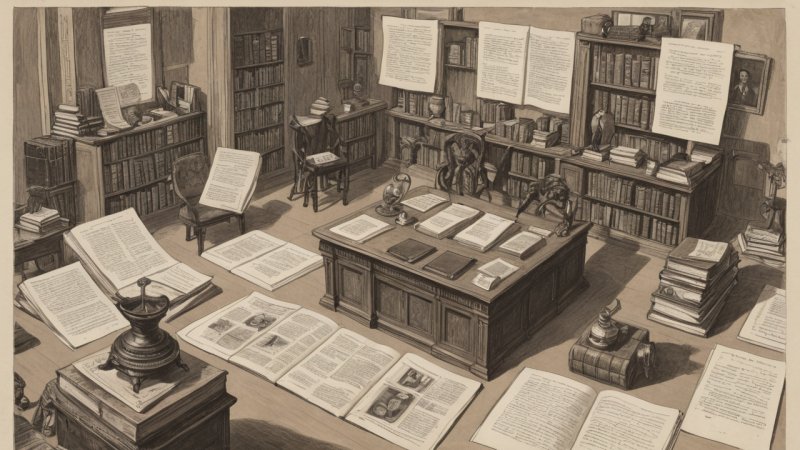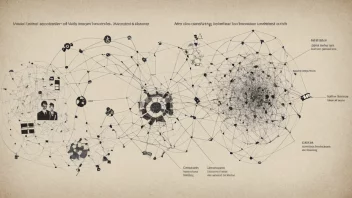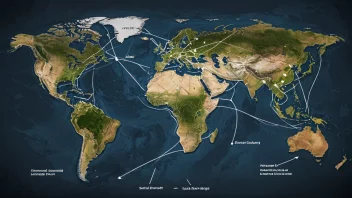The intersection of humanities research and public policy is a fascinating area that reveals how insights from history, philosophy, and cultural studies can significantly influence the decisions made by governments and organizations. As societies grapple with complex issues such as social justice, education reform, and environmental sustainability, the contributions of humanities scholars become increasingly vital. This article explores five key ways in which humanities research informs public policy, making it relevant to both policymakers and the general public.
1. Understanding Historical Context
One of the primary contributions of humanities research is its ability to provide a historical context for contemporary issues. By examining past events, cultural movements, and societal changes, researchers can uncover patterns that inform current policy decisions. For instance:
- Learning from Mistakes: Historical analysis can reveal the consequences of previous policies, guiding current leaders to avoid repeating errors.
- Contextualizing Social Movements: Understanding the historical roots of movements like civil rights or environmentalism can help policymakers grasp the nuances of current advocacy efforts.
- Influencing Legislation: Historical case studies often serve as a foundation for new laws and regulations, ensuring that they reflect the lessons learned from the past.
2. Enhancing Cultural Competency
Humanities research plays a crucial role in promoting cultural competency among policymakers. By studying diverse cultures, languages, and philosophies, researchers help leaders understand the values and perspectives of different communities. This understanding is essential for:
- Inclusive Policy Development: Policies that consider cultural differences are more likely to be effective and equitable.
- Community Engagement: Engaging with local communities requires an appreciation of their cultural contexts, which humanities research can provide.
- Reducing Bias: Increased cultural awareness can help mitigate biases in policy-making, leading to more fair and just outcomes.
3. Informing Ethical Decision-Making
Ethics is a cornerstone of public policy, and humanities research offers valuable insights into moral philosophy and ethical frameworks. This influence manifests in several ways:
- Guiding Policy Frameworks: Ethical theories can help shape the principles that underpin policies, ensuring they align with societal values.
- Addressing Controversial Issues: Humanities scholars often engage with contentious topics, providing balanced perspectives that can guide decision-making.
- Promoting Accountability: Ethical considerations encourage transparency and accountability in policy implementation, fostering trust between the public and policymakers.
4. Shaping Public Discourse
Humanities research has the power to influence public discourse, which in turn affects policy priorities. By contributing to conversations around critical issues, scholars can:
- Highlight Underrepresented Voices: Humanities research often brings attention to marginalized communities, ensuring their perspectives are considered in policy discussions.
- Encourage Critical Thinking: Engaging with humanities scholarship promotes analytical skills and critical thinking among the public, leading to more informed citizens.
- Foster Dialogue: Humanities research can create platforms for dialogue, allowing diverse viewpoints to be shared and understood.
5. Supporting Evidence-Based Policy
Finally, humanities research contributes to evidence-based policy-making by providing qualitative data and narratives that complement quantitative research. This support includes:
- Case Studies: In-depth analyses of specific cases can reveal insights that numbers alone cannot capture.
- Public Sentiment Analysis: Humanities research often explores public opinion and sentiment, helping policymakers gauge community reactions to proposed policies.
- Longitudinal Studies: Research in the humanities can track changes over time, providing valuable context for understanding the impact of policies.
In conclusion, the relationship between humanities research and public policy is dynamic and multifaceted. By offering historical context, enhancing cultural competency, informing ethical decision-making, shaping public discourse, and supporting evidence-based policy, humanities scholars play a crucial role in shaping the policies that govern our lives. Their insights not only enrich the policy-making process but also ensure that it is more inclusive, just, and effective.






